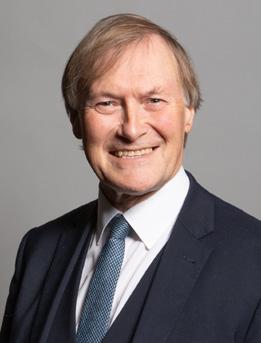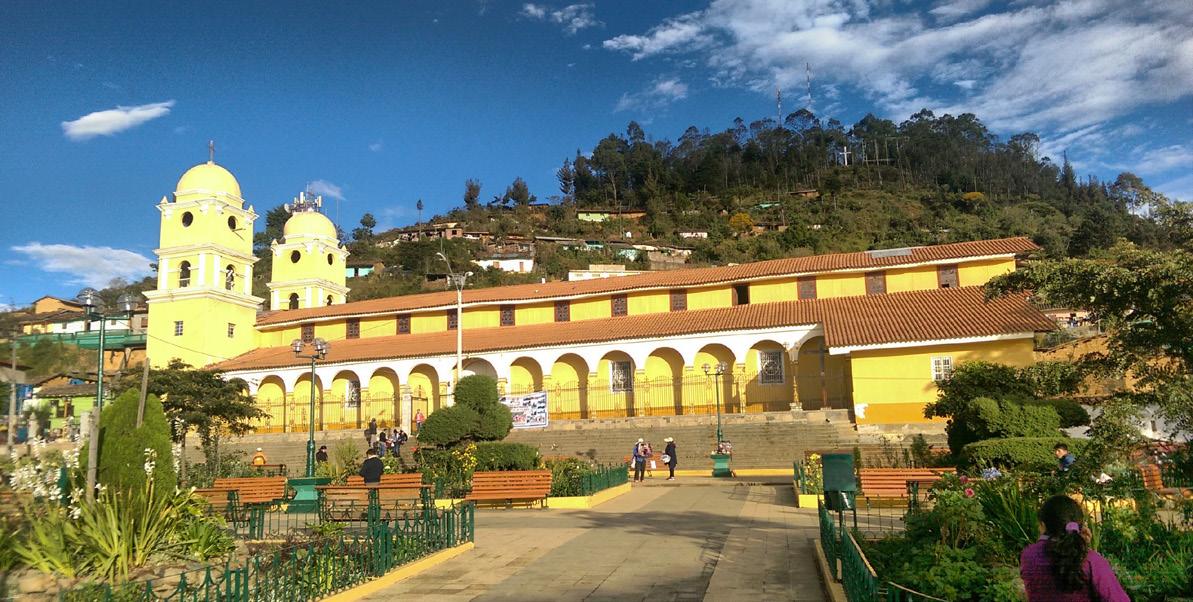
5 minute read
Crime Scenes and Last Rites by the Catholic Union
from Oremus January 2022
Crime Scenes and Last Rites
The Catholic Union
On Monday 22 November, the House of Lords debated an amendment to the Police, Crime, Sentencing and Courts (PCSC) Bill on ministers of religion having access to crime scenes.
The amendment was tabled by Conservative peer, and former Lords Leader, Baroness Stowell of Beeston, and Crossbench peer, Baroness Masham of Illton, following the murder of Sir David Amess MP in October. It was tabled as a so-called ‘probing amendment’ to give peers the opportunity to debate the matter and provide Government with an opportunity to respond. The debate took place the day before Sir David’s funeral in Westminster Cathedral.
While not a Catholic herself, Baroness Stowell described the news that Sir David’s priest, Fr Jeffrey Woolnough, had not been able to administer him the Last Rites on the day he died as ‘surprising and upsetting’. She said it was ‘reasonable to expect the police to have an understanding of Christianity’, given it remains the dominate religion in this country. A number of other peers contributed to the debate in a late night sitting of the House of Lords. The Anglican Bishop of Leeds, the Rt Rev Nick Baines, called for ‘deeper religious literacy in our public life’ and said we needed to challenge the view that religion was solely a private matter. Baroness Masham highlighted the need for a police force that was ‘kind, honest, and well-trained’ to prevent what happened with David’s priest from happening again.
Responding to the debate, Home Office Minister, Baroness Williams of Trafford said that as a Catholic she recognised the importance of these matters. She said there was a ‘sensitive balance to strike’ between respecting the duties of the police and wishes of the individual. There was a concern that a new law creating a presumption for priests to access a crime scene ‘had the potential to prevent the police from doing their job effectively’, but she committed to meet representatives from the Catholic Union to discuss the matter. Baroness Williams also welcomed the creation of a joint group between the Catholic Bishops’ Conference and the Metropolitan Police to look into whether changes to guidance or training are needed. The amendment was not pushed to a vote – as is customary for Committee stage amendments – and the Bill continues its passage through Parliament.
Catholic Union Chairman, Rob Flello, comments: ‘People across the country were shocked by David’s murder, but for Catholics in the public eye his death is a particular blow. David was a committed Catholic parliamentarian and friend to the Catholic Union. I had the privilege of serving with him in Parliament for 12 years and we worked together on a number of issues close to both our hearts as well as the common ground we shared as fellow Catholic MPs. What made the tragic events of that day even harder to accept was the fact that David was denied the final sacraments. This has caused deep unease in the Catholic community. It also touches on a much wider concern about whether society truly understands the importance of faith to peoples’ lives. Catholics are not seeking special treatment. We want to see everyone’s faith respected during their life and death. What happened to David cannot be allowed to happen to anyone in future’.
© Richard Townshend / Houses of Parliament
The late Sir David Amess MP


The church of Nuestra Señora del Pilar in Ayabaca, home to the Señor Cautivo
A Different Kind of Pilgrimage
Bishop Mark Jabalé OSB
In last month’s Oremus, Bishop Mark described the origins of the pilgrimage to the Señor Cautivo of Ayabaca in Peru and the seriousness with which it is undertaken. Thus far the journey has been pretty much on the flat, but read on ...
Soon the scenery begins to change, and the road starts to climb. Little by little, as there is no irrigation, the landscape gets wilder and takes on a spaghetti-western look. Immense cacti, wild bushes and Algorrobo, or Carob, trees are dotted along the gently rising curves. Hillocks and boulders betray the volcanic origins of the area; you would think you are in a different country. From time to time you will come across a Peruvian riding a horse or donkey, and at any moment you expect to see Clint Eastwood appear in search of a few dollars more ...
The end of that gently rising valley sees the first post of the Guardia Republicana; to the left will continue the main road to Macara, the first town in Ecuador some 20 miles on; but we go right along the road into the pre-Andes and to Ayabaca. The road, now only a beaten earth track, continues through the same scenery, but rising more steeply for what seems an age to us, and must feel like years to the walking pilgrims. Somewhere along here, in a small village church or hall, or just out in the open, the pilgrims will settle for an uneasy night on a hard floor after a cold and very frugal meal.
As you rise towards the mountains, so the scenery undergoes another change. It is now the wonderland of Alice; with enormous mushroom-shaped trees whose name I forget, weird and wonderful flowering cacti and vividly coloured birds. And all the time the vegetation is getting wilder. The road, or rather track, climbs more steeply and the mountains now surround you. And so begins the hard climb to the cloudbase through which you will have to go before you emerge into the sun in the valley at the top, some 6,500 feet up. Mountain to one side and precipice to the other, pilgrims will climb on a rutted, rocky, muddy and treacherous track.
By this time the little wheel on the foot of the cross of the 'cheater' is no good; it's got clogged-up, or perhaps come to bits; so it was no use after all, and you can't cheat the Señor Cautivo. The change in the weather is also noticeable. From about 2,000 feet it becomes welcomingly cool for such hard exercise; but at night it's not so good, and the single blanket is not really enough to ensure a decent night's sleep. So it's even more important to find a school hall or a church to rest in; but not always possible. The night can seem even longer than the day when you can’t get warm; but then this is all part of the promise made to Cautivito. A persistent heavy drizzle has now taken over, as you’re in the middle of the cloud, and there are parts of the track covered with salitre, that slippery treacherous mud which has the same effect as hard-packed ice; the incline of the road is not getting any less and its thin strip hugging









